Ghana, often referred to as the “Gateway to Africa,” boasts a rich and diverse culture that reflects its history, people, and traditions. While many people may be familiar with Ghana’s colorful kente cloth or its vibrant festivals, there are countless fascinating aspects of Ghanaian culture that remain lesser-known. Here are five intriguing things you might not know about Ghanaian culture:
1. The Concept of “Sankofa”
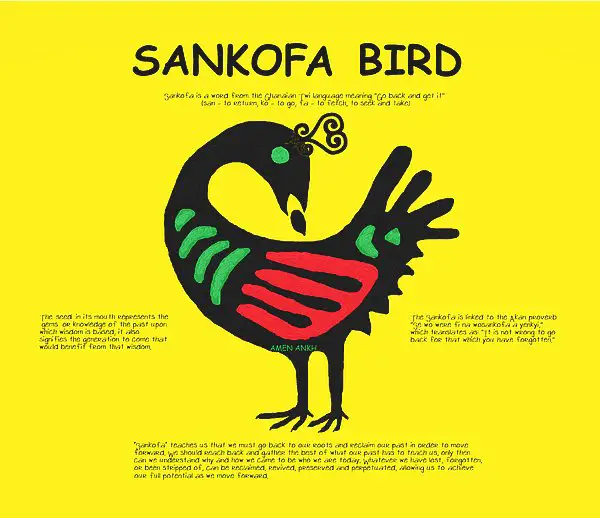
Sankofa, a term from the Akan language, translates to “go back and get it.” Represented by a bird with its head turned backward holding an egg, Sankofa embodies the importance of learning from the past to build a better future. This philosophy is deeply embedded in Ghanaian culture and influences how history and traditions are preserved while embracing progress.
2. Naming Ceremonies and Day Names
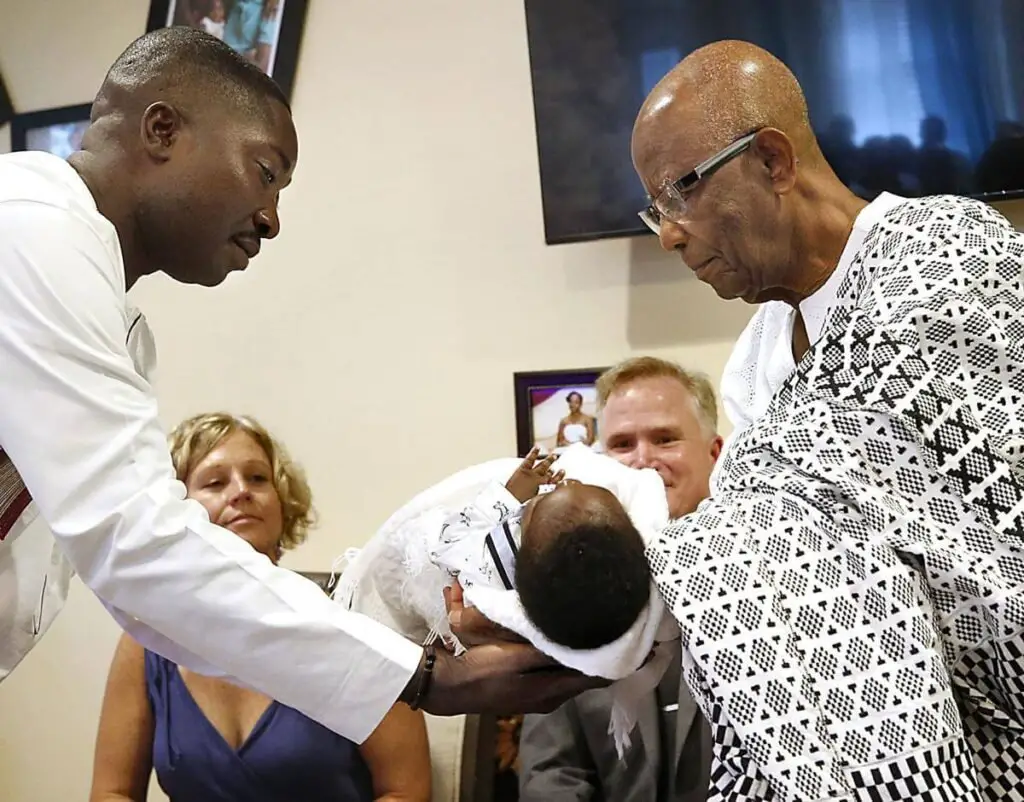
In Ghana, names carry significant meaning, and many people are named based on the day of the week they are born. For example, a boy born on a Friday might be called Kofi, while a girl could be Afia. Beyond day names, elaborate naming ceremonies, called “Outdooring,” are held to introduce a newborn to the community, accompanied by prayers, blessings, and traditional rituals.
3. Food as a Communal Experience
Ghanaian meals are more than sustenance; they’re a way to connect and build relationships. Sharing a meal is seen as a sign of unity and respect. Dishes like jollof rice, fufu, and waakye are staples in Ghanaian cuisine, often enjoyed in a communal setting. The use of hands to eat, particularly with fufu, reflects a closeness to tradition and an appreciation for the sensory experience of dining.
4. Elaborate Funerals
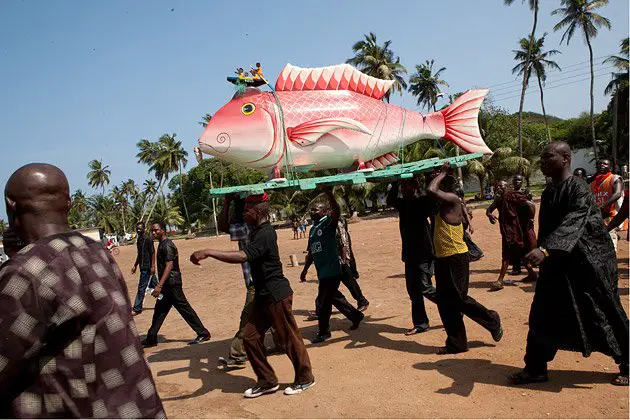
Ghanaian funerals are not just solemn occasions but celebrations of life. They are marked by vibrant music, dancing, and often colorful attire. Families invest significant resources into funerals, as they believe it is a way to honor the deceased and ensure their peaceful transition to the afterlife. Coffins are sometimes custom-made to reflect the passions or professions of the departed, such as a fish-shaped coffin for a fisherman.
5. Respect for Elders
Respect for elders is a cornerstone of Ghanaian society. Elders are regarded as custodians of wisdom and are often consulted for guidance in important matters. It is customary to greet them first in social settings, and younger individuals often kneel or bow slightly as a sign of respect. This reverence extends to family structures, where the extended family plays a significant role in upbringing and decision-making.
Why Understanding Ghanaian Culture Matters
Ghana’s culture is a testament to its rich history and resilience. By exploring and appreciating these lesser-known aspects, travelers and enthusiasts gain a deeper connection to the country and its people. Whether you’re visiting Ghana for the first time or are a frequent traveler, immersing yourself in the local culture offers an enriching experience that goes beyond the surface.
Are you ready to uncover more about Ghana and its captivating traditions? Start planning your journey today, and let Ghana’s vibrant culture inspire you!



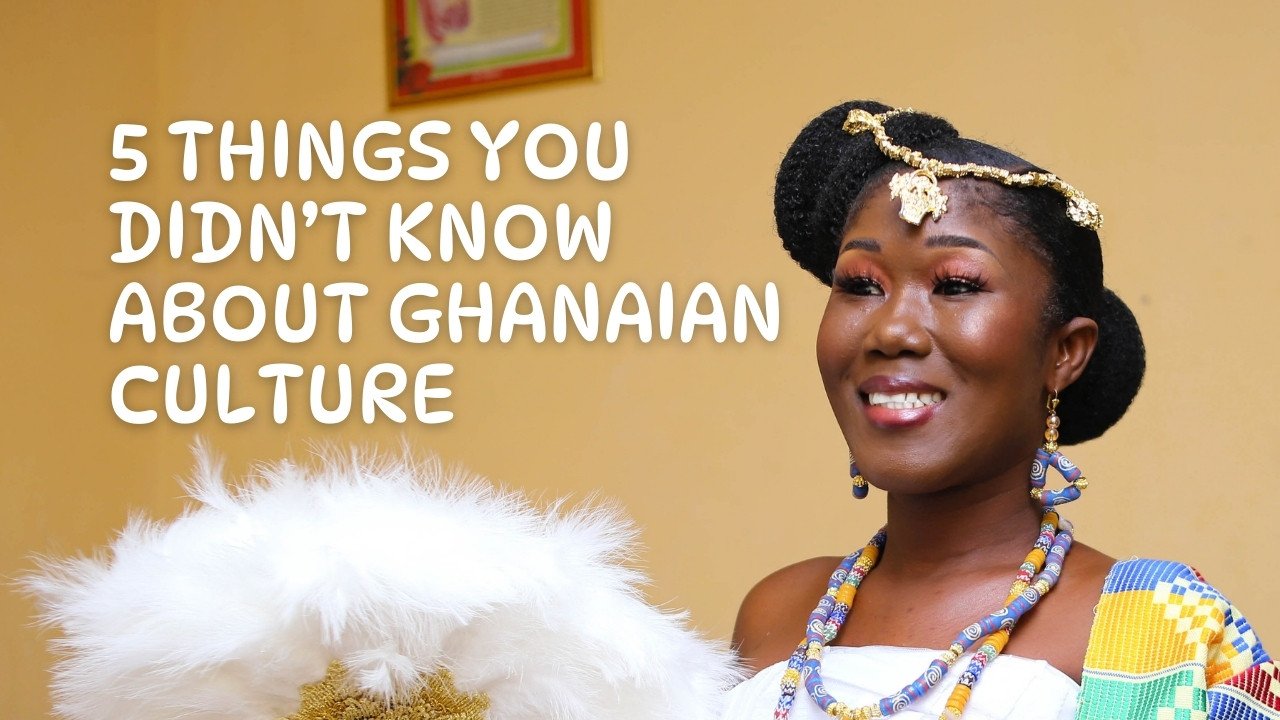



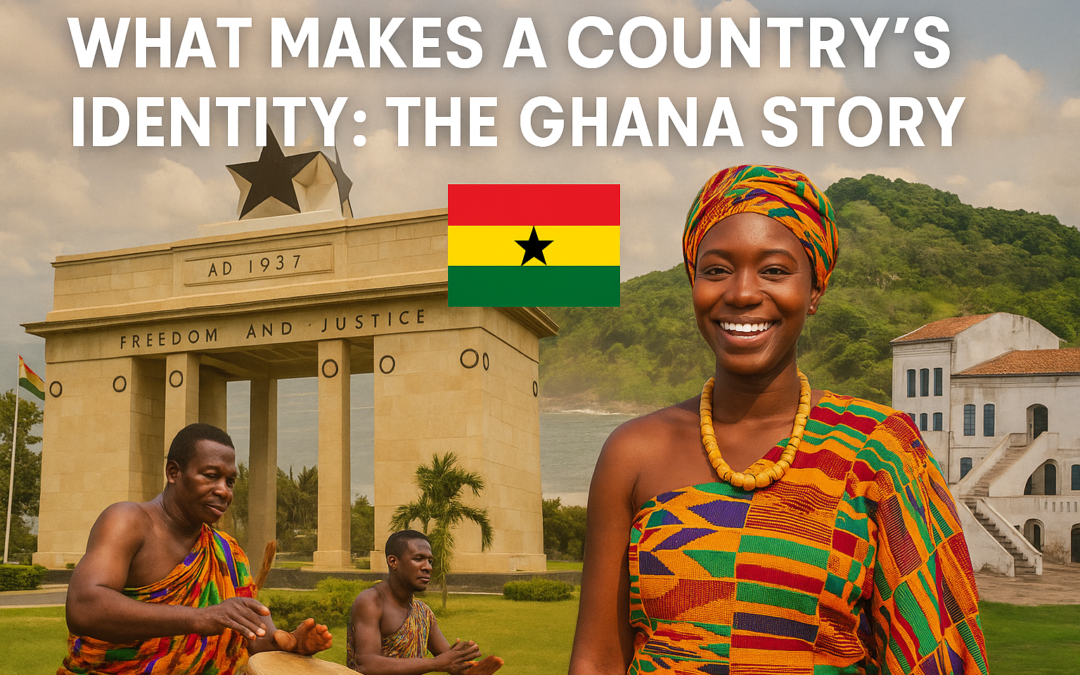
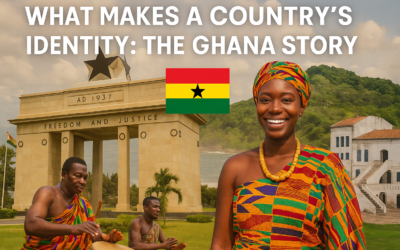


0 Comments